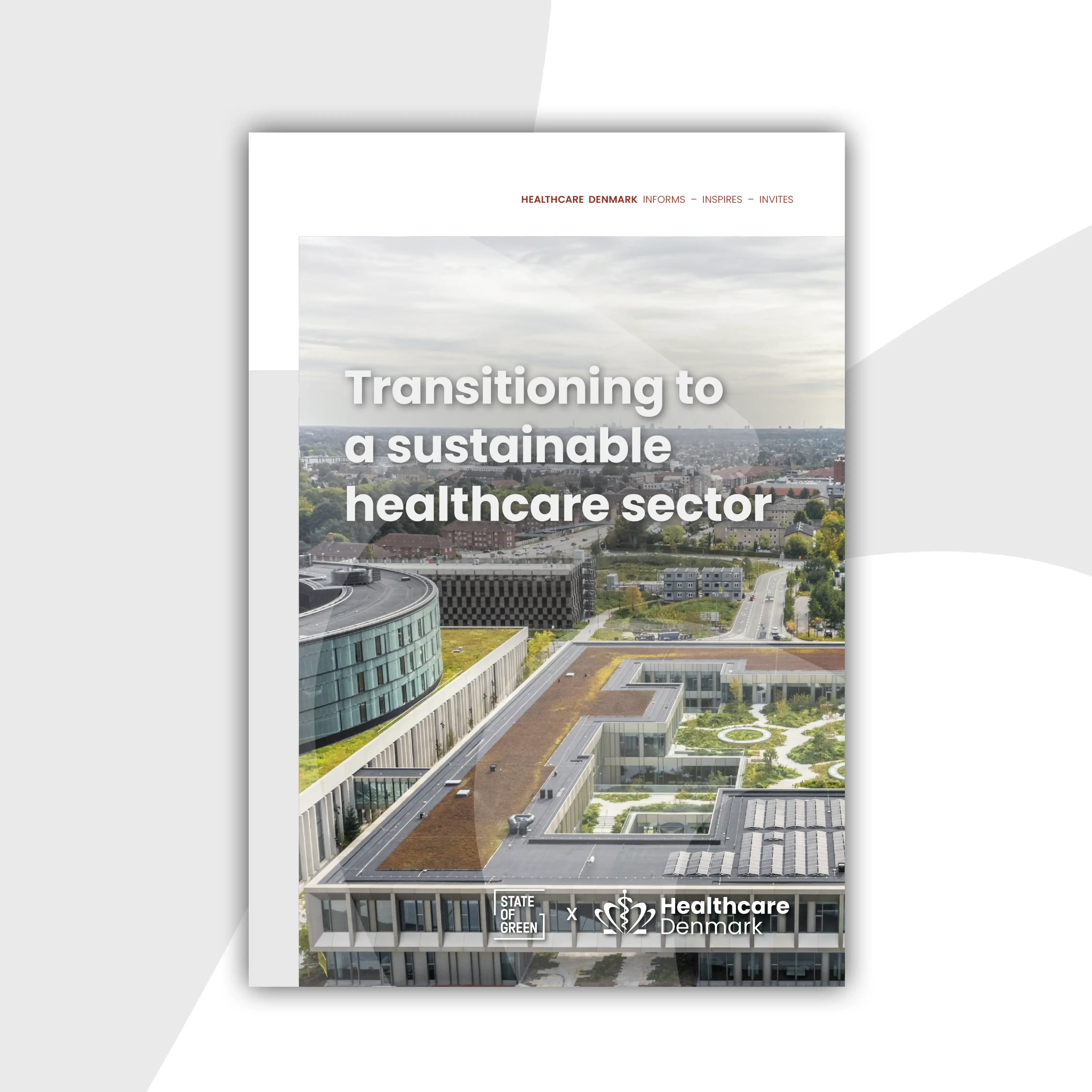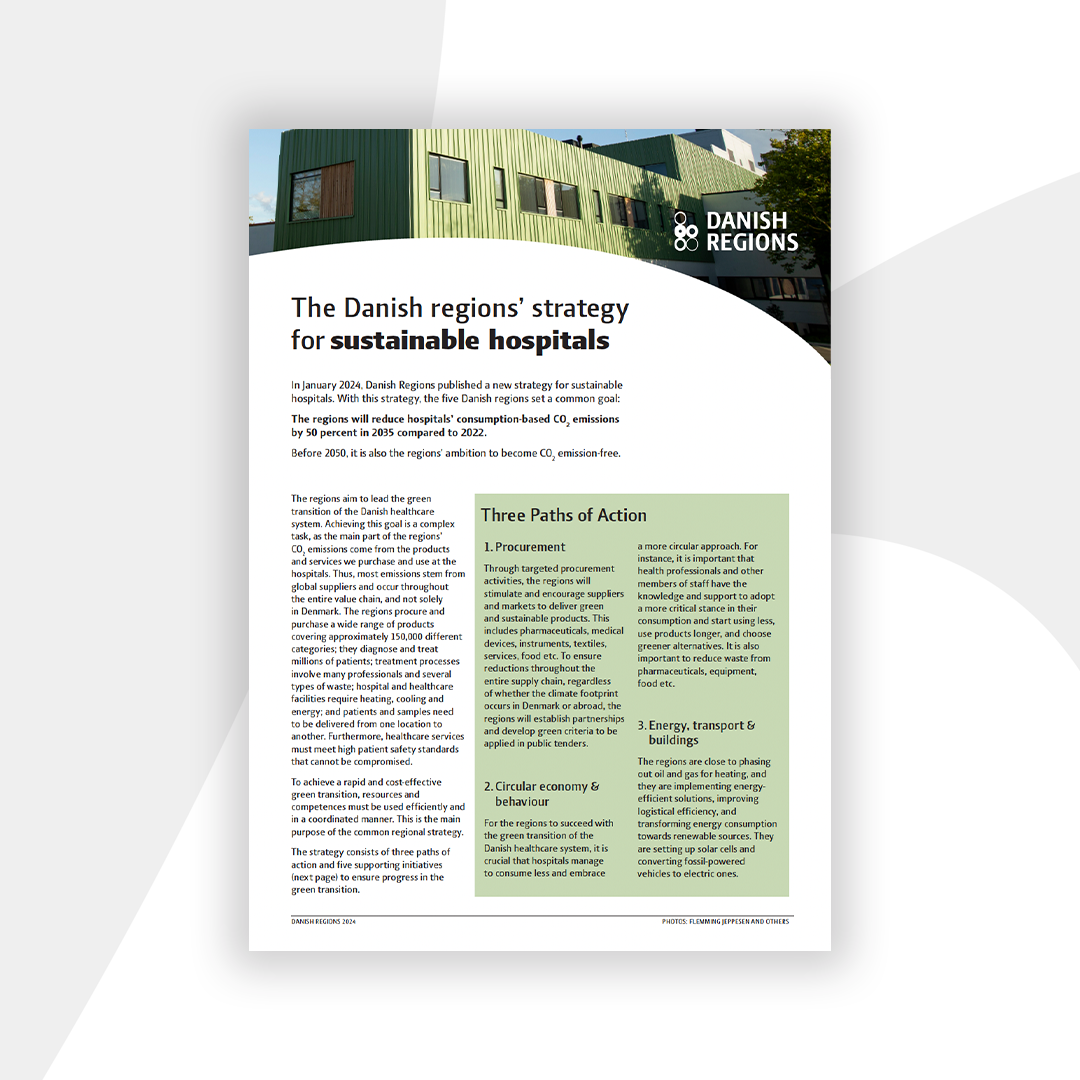Sustainability
Denmark is dedicated to transitioning to a green and sustainable healthcare sector, where both public institutions and private companies take responsibility for cultivating innovative solutions and practices, while maintaining a resilient and high-quality healthcare sector.
In the 21st century, sustainability has transformed from a choice to an essential strategy for the global community's well-being and survival. Sustainability is about securing the future through the choices we make in our daily lives across all sectors and areas.
The healthcare sector with its energy-intensive hospitals and production facilities, its resource consumption and waste generation, holds a unique position. By integrating sustainable practices into the health sector's core practices, it can minimise its environmental footprint, improve health outcomes, and foster broader societal shifts towards sustainability.
It is difficult to precisely estimate the carbon footprint of the healthcare sector, however several assessments indicate that the Danish healthcare sector accounts for 6% of Denmark's total CO₂ emissions.
It is therefore important that we actively work with sustainability throughout the healthcare system – and the work is, of course, a collaboration. A collaboration that must cut across sectors, services, and sizes. It should be a cooperation where we learn from each other and share experiences on the way towards the common goal of a greener healthcare system.
Recognising the healthcare sector's role is imperative to ensure that healthcare systems evolve to become more resilient and less carbon-intensive, especially given the exacerbating effects of climate change on health, highlighting the urgent need for action. This urgent need is underscored with a new Declaration on Climate and Health, endorsed at COP28 by 124 countries.
For years, Danish companies and hospitals have searched the way in creating and deploying innovative solutions which provide a blueprint on how to transition to a sustainable healthcare sector.
A cornerstone of the Danish approach is to conduct research in sustainability in healthcare in order to provide the solutions that really works when time and effort are to be spent on green initiatives in a busy day-to-day life.
It requires political engagement, government strategies and critical appraisal of practices all the way from the ground floor to the boardroom, and willingness to embrace new innovative solutions that foster a sustainable healthcare system.
The Danish approach towards a sustainable healthcare sector has led to the implementation of a wide range of measures and visionary solutions aimed at reducing CO₂ emissions, all actively contributing to the achievement of the Sustainable Development Goals, fulfilling the Paris Agreement's objective of limiting global warming to 1.5 degrees Celsius, and not least meet the ambitious government target of climate neutrality by 2050.

Transitioning to a sustainable healthcare sector
From energy-intensive hospitals and production facilities to high waste production and resource consumption, the healthcare sector has an important role to play in the trajectories of the current green transition – and now, in the aftermath of COP28, where momentum is growing behind decarbonization and resilience in health, we believe that sharing experiences and insights globally on this issue is more important than ever.
This publication shares best practices, innovative solutions, and strategies across the healthcare sector, including the life science industry for reaching the ambitious climate goals of the Paris Agreement. Download the publication below to read more about the Danish approach towards a sustainable healthcare sector.

The Danish regions’ strategy for sustainable hospitals
The regions aim to lead the green transition of the Danish healthcare system. Achieving this goal is a complex task, as the main part of the regions’ CO2 emissions come from the products and services we purchase and use at the hospitals. With The Danish regions’ strategy for sustainable hospitals, launched in January 2024, all five regions in Denmark are now in the process of transitioning to greener and more sustainable hospitals.